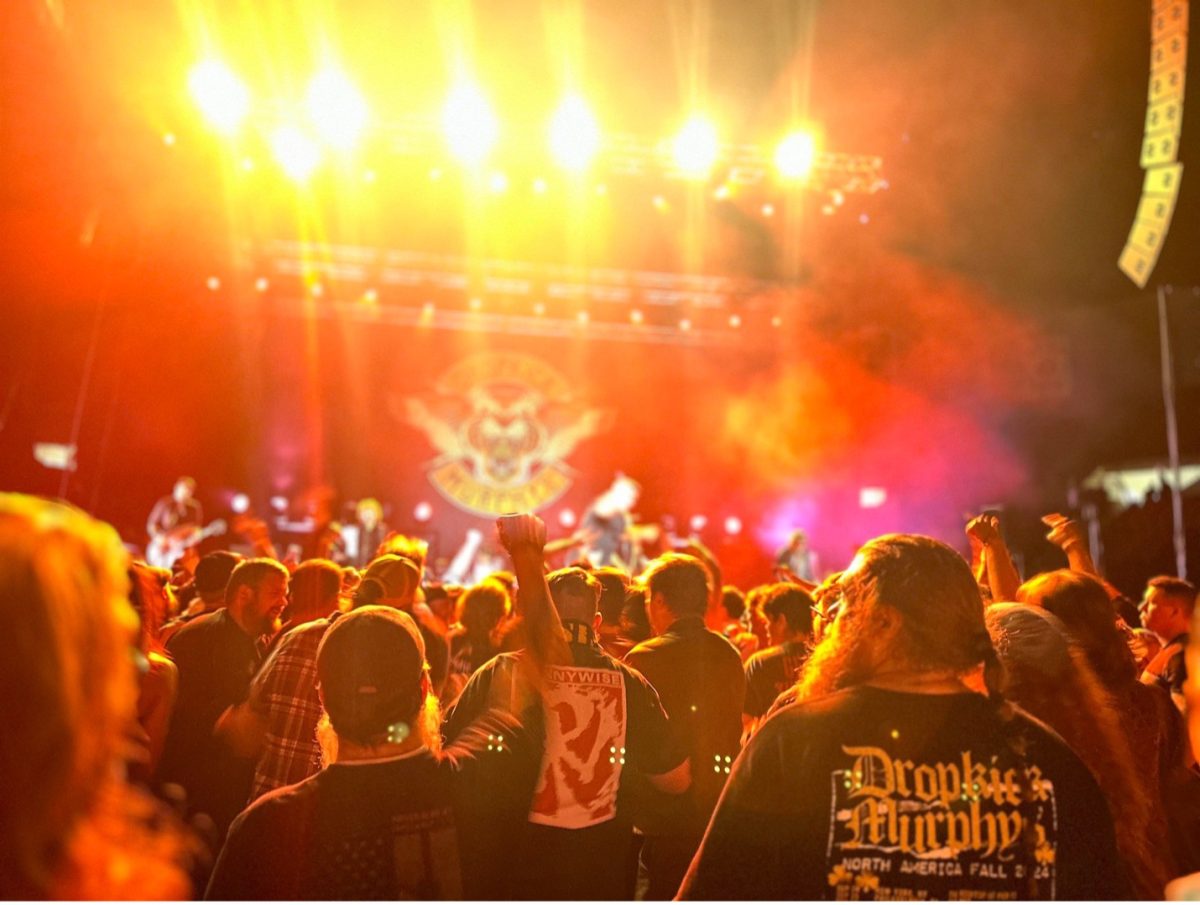Editor’s note: This is part of the Daily Collegian’s St. Patrick’s Day special issue.
In citing why I don’t like U2, I am not going to take a cheap shot at Bono and say that he does not know how to count (“one, two, three, 14”?).
I do not dislike Bono. In fact, I would even venture to say that he is a great songwriter. The members of U2 have become spokespeople for the love-not-war cause. They have great potential as writers and musicians. However, this potential is buried deeply under their sub-par music.
Allow me to digress momentarily. Johnny Cash and Bob Dylan admired one another from afar before teaming up musically. After a long written correspondence (initiated by Cash), the two finally met at the Newport Music Festival in 1963. Because of this meeting we are blessed with the 1968 album, “The Dylan/Cash Sessions,” with songs like “Girl from the North Country” and “One Too Many Mornings.” At times, they sing over each other. On the album, you can hear pauses, laughter and mistakes.
Bono, too, has collaborated with Dylan. The two dined and shared personal philosophies and song lyrics. While Cash and Dylan complemented each other musically, Bono and Dylan respected each other more than they were compatible as artists. Dylan helped Bono write “Love Rescue Me,” which is a good song, but the collaborative process did not permanently convert Bono’s musical style. Nothing Bono has done contains the pure organic rawness of “The Dylan/Cash Sessions.”
If you listen closely to Bono’s lyrics, maybe you can hear the influences of his folk friends and predecessors. But Bono argues through his music that his lyrics sound better as ambient pop songs than folk songs. I disagree.
A prime example that Bono’s lyrics and melodies would be better suited to folk is Johnny Cash’s cover of U2’s “One.” In this song, it sounds like Bono is talking about a betrayal of a sense of unity on both a national or international sense: “One life with each other/ Sisters, Brothers,” and also on a personal level. In fact, Bono was inspired by the band’s temporary break-up, and “One” was the song that brought them back together: “It’s too late tonight/to drag the past out into the light./We’re one but we’re not the same.”
This is good stuff. The song gets even more complex lyrically toward the end of the song with the breakdown: “Have you come here for forgiveness? / Have you come to raise the dead? / Have you come here to play Jesus to the lepers in your head?”
But until I heard Cash’s cover, I had never heard those lyrics. Sure, I’d listened or been exposed to the original version plenty of times before, but the words were lost in post-production, in heavy guitar and layer upon layer of the same track.
U2 uses a technique called multi-register layering. Bono records several different tracks of the same lyrics and melody but in different vocal registers. This is how U2 creates their signature sound, what is referred to by Scott Calhoun in his book, “Exploring U2: Is this Rock and Roll?” as “a sense of sonic space.”
In an article on David Bowie’s “Station to Station,” published in Creem Magazine in April of 1976, rock critic Lester Bangs writes that sometimes Bowie’s words “appear out of the instrumental propulsion like swimmers caught in a rip tide not sure whether they wanna call for the lifeguard or just enjoy it.”
Bono’s music is like that. Words get lost in the echo delay of Edge’s guitar – not something I’m willing to take in place of audible lyrics.
It might surprise you at first that most of U2’s albums, including “Achtung Baby” and “The Joshua Tree” were produced by Brian Eno, but it makes sense. Eno pioneered ambient pop in the 1970s and has always combined many obscure sounds to color his music. He also used a tape and delay system to create a denser sound.
When it came to producing for U2, Eno implemented his ambient sound techniques. Eno was most likely trying to get a specific sound to complement songs that he already envisioned. Perhaps he was making up songs as he went along using tape loops. In either case, the way his songs are put together is very intentional.
Perhaps this is why Eno’s employment of ambient noise sounds better on his own albums than on U2’s. It could be just that Bowie’s voice and Eno’s voice complement ambient guitar better than Bono’s. Whatever the case, the denseness found on Eno’s albums feels just that, well, dense. But in Bono’s case, no matter how many layers of sound there are, it feels hollow.
The voice quality of Johnny Cash on “One” in comparison to the 1960s when he was in his prime is vastly different. But even though his voice shakes and wavers a bit from age and illness, I could listen to him sing, “One,” for days. Cash pulls out the emotion that Bono intended.
Bono, on the other hand, has sung in an operatic yell almost consistently throughout his entire career. Yelling can indicate an expulsion of emotion, but Bono’s yells are whiny, and as for his sincerity, I’m just not buying it.
Rachael Roth is a Collegian columnist. She can be reached at [email protected].












